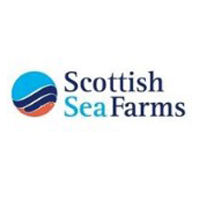‘Good’ first quarter for Scottish Sea Farms

SALMON farming giant SalMar today announced ‘satisfactory’ first quarter results for 2018, with overall price during the period contributing to revenue growth and further strong earnings.
Its half owned Scottish subsidiary, Scottish Sea Farms, posted a good result in the first quarter 2018 on the back of sound underlying operations. It harvested 6,000 tonnes in the quarter, up from 5,900 tonnes in 2017, but down from 7,200 in the previous quarter. The company expects to harvest around 26,000 tonnes in 2018
Gross operating revenues were NOK 518.7 million in the first quarter, up from NOK 485.0 million in the fourth quarter of last year and from NOK 372.4 million in the first quarter 2017.
Fish affected by poor gill health were harvested out in the fourth quarter 2017 and, as a result, the company now has a good biological status in all its operational areas.
Contract sales accounted for 32 per cent of the volume harvested. EBIT per kg gutted weight came to NOK 26.67 in the period, compared with NOK 16.00 per kg in the previous quarter and NOK 24.22 per kg in the first quarter 2017.
Overall, SalMar’s operational EBIT totalled NOK 708.1 million in the quarter, up from NOK 670.7 million during Q1 2017.
CEO Olav-Andreas Ervik, who took over as CEO last month, said: ‘The first quarter was somewhat mixed for the SalMar Group. Price achievement in the quarter was good and, operationally, all the group\’s business areas posted satisfactory results.
‘However, higher underlying costs for fish harvested in Northern Norway and lower activity in the sales and processing segment had a negative effect on their performance.
‘Our goal is to be the world\’s best aquaculture company, and having the lowest costs has always been SalMar\’s clear objective.
‘We are therefore continuously working to control and reduce costs without compromising the welfare of our salmon,’ Olav-Andreas Ervik added.
SalMar generated gross operating revenues of NOK 2.5 billion in the quarter, up from NOK 2.4 billion in the corresponding period in 2017.
The group harvested 31,900 tonnes of salmon compared with 26,300 tonnes last year. EBIT per kg came to NOK 22.21 in the quarter, down NOK 3.29 per kg from the same period in 2017. The market price of salmon was NOK 5.52 per kg lower in the first quarter 2018 than in the first quarter 2017.
The Q1 report states: ‘Biological developments in the fish farming Central Norway segment were satisfactory in the quarter, despite low sea temperatures. The bulk of the volume harvested in the period were fish transferred to the sea in the autumn of 2016.
‘Out of consideration for fish welfare, some stocks were harvested earlier than planned in the quarter. This negatively affected the production cost of the fish harvested.
‘Overall, the segment kept developments in the cost of its harvested fish in line with previous quarters. The Central Norway segment\’s costs are expected to improve in coming quarters.’
The sales and processing segment posted strong price achievement in the quarter, but its earnings were affected by seasonally low levels of activity in the secondary processing area.
Furthermore, fixed price contracts, which accounted for 39 per cent of the volume harvested in the period, made a negative contribution in the quarter. The segment made an operating loss of NOK 15.3 million compared with loss of NOK 61.3 million in the same period last year.
Based on estimates of the standing biomass at the close of the first quarter 2018, the global supply of Atlantic salmon in 2018 as a whole is expected to increase by four per cent.
Combined with expectations that demand will remain consistently high, this indicates a balanced salmon market, with the prospect of continued strong earnings.
SalMar expects to harvest around 143,000 tonnes in Norway in 2018 as a whole.
Iceland
Arnarlax, SalMar’s Iceland operation, is expected to harvest 8,000 tonnes in 2018. It harvested around 2,600 tonnes in the first quarter 2018, compared with 2,000 tonnes in the same period last year.
Gross operating revenues in the quarter came to NOK 139.8 million, compared with NOK 146.2 million in the corresponding period in 2017.
The company experienced an unusually high mortality rate caused by the handling of fish when sea temperatures in Iceland were extremely low.
Further handling mortality occurred in connection with the relocation of fish after one of the company’s net pens was damaged in a storm.
This extraordinary mortality has been recognised as an expense in the quarter. Operational EBIT for the period came to NOK -40.2 million, which corresponds to an EBIT per kg of NOK -15.65. In the previous quarter.
Arnarlax achieved an operational EBIT of NOK 4.3 million, corresponding to an EBIT per kg of NOK 1.35.

